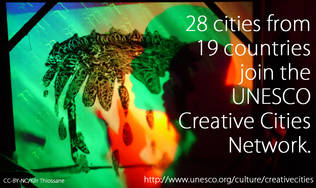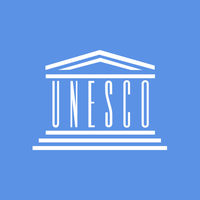UNESCO designates 28 new Creative Cities worldwide

As a result of the 2014 Call for applications, UNESCO Director-General, Irina Bokova, has designated 28 cities, from 19 countries, as new members of the UNESCO Creative Cities Network. Within ASEM, new members of the UNESCO Creative Cities Network come from New Zealand, Ireland, Bulgaria, Austria, Czech Republic, Indonesia, the UK, Japan, Korea, Spain, Germany, Finland and China.
UNESCO Creative Cities Network is pleased to welcome the following cities within its seven thematic areas (Craft and Folk Arts, Design, Film, Gastronomy, Literature, Media Arts and Music):
- Bilbao (Spain) – Design
- Busan (Republic of Korea) – Film
- Curitiba (Brazil) – Design
- Dakar (Senegal) – Media Arts
- Dundee (United Kingdom of Great Britain and Northern Ireland) – Design
- Dunedin (New Zealand) – Literature
- Florianopolis (Brazil) – Gastronomy
- Galway (Ireland) - Film
- Granada (Spain) – Literature
- Gwangju (Republic of Korea) – Media Arts
- Hamamatsu (Japan) – Music
- Hanover (Germany) – Music
- Heidelberg (Germany) – Literature
- Helsinki (Finland) – Design
- Jacmel (Haiti) – Crafts & Folk Arts
- Jingdezhen (China) – Crafts & Folk Arts
- Linz (Austria) – Media Arts
- Mannheim (Germany) – Music
- Nassau (Bahamas) – Crafts & Folk Arts
- Pekalongan (Indonesia) – Crafts & Folk Arts
- Prague (Czech Republic) – Literature
- Shunde (China) – Gastronomy
- Sofia (Bulgaria) – Film
- Suzhou (China) – Crafts & Folk Arts
- Tel Aviv-Yafo (Israel) – Media Arts
- Tsuruoka (Japan) – Gastronomy
- Turin (Italy) – Design
- York (United Kingdom of Great Britain and Northern Ireland) – Media Arts
By joining the Network, cities commit to collaborate and develop partnerships with a view to promoting creativity and cultural industries, to share best practices, to strengthen participation in cultural life, and to integrate culture in economic and social development plans.
The UNESCO Creative Cities Network now comprises 69 cities that have identified culture and creativity as a strategic driver for sustainable urban development.
UNESCO also announced ten elements inscribed on the Representative List of the Intangible Cultural Heritage, including:
- Japanese washi (hand-made paper)
- Estonia smoke sauna tradition
- Kazakhstan traditional art of Dombra Kuy (music)
Similar content
posted on
12 Jan 2016
posted on
01 Nov 2019
posted on
09 Nov 2021
posted on
15 Nov 2023
deadline
28 Aug 2022
posted on
14 Jun 2010






